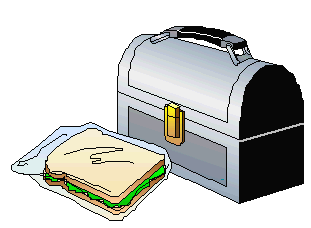When the lonely dine alone, it’s not a choice. Inviting them to join us, is.
“WE’RE DOING CHINESE TODAY,” says Bill, popping his head into my cubicle. “I don’t suppose you’re coming?” Bill respects that I keep kosher.
“No, but thanks for asking.” Each workday, at the stroke of noon, the two of us, together with Bob, Matt, and our boss Tom, converge on the cafeteria. Our “lunch club” stakes out a long, eight-seat table, where we lock wits and wills in pitched debate about ethics, values, and world affairs.
Our repartee can grow heated. Two weeks ago we debated the rules and traditions of baseball, and sparks flew. Why not dye the ball orange so players can see it against the night lights? Why not let the umpire’s call be overturned by the instant replay? And how can the Infield Fly Rule be in harmony with the Creator’s plan?
Intrigued, a technician dining alone walked over and joined us. Amiable and articulate, Jerome has become a welcome visitor to our club.
But today the club regulars are eating Chinese. So I gather my cooked carrots, kasha with vegetables, and peanut butter sandwich and trek to the cafeteria to dine alone. If I’m lucky, Jerome will be there.
Jerome is not there. But another familiar face is. Sad-eyed, pudgy, and pushing forty, he sits alone at the table beside the lunch club’s, staring at the wall while methodically dispatching a brown-bag lunch.
At surrounding tables, his coworkers are squaring off over poker or chess, perusing the Washington Times, chewing over the latest union news, or simply schmoozing. Yet the brown-bagger, in his bright red checkered shirt, remains invisible.
But he’s anything but inaudible. Every 20 seconds, he bellows his thoughts in a slow, sedated drawl. “This apple is kinda bitter.” “Looks like it’s gonna rain.”
At times, he has tried to join the lunch club’s soirée. During our baseball brabble he chimed, “The Orioles are supposed to have a winning season next year. Do you think they’ll have a winning season?” We ignored his question, careful not to glance his way. Glancing would only have encouraged him. No one said so; no one had to.
Whenever I’ve ignored him, I’ve borne a heavy heart. It doesn’t sit right, piously pronouncing on decency while averting your brother’s lonely eyes.
It’s not as though I’ve never asked a strange face to dine with me. I’ve done so at least a dozen times.
My most memorable invitation was extended in Cincinnati. The year was 1981; I was a gallant of 23, not yet religous. I was riding the bus downtown to catch a film matinée. A dark-haired beauty boarded, her chestnut mane tumbling to her faded Levis. Capping her Semitic brown eyes were a pair of arched Vulcan brows that turned my heart to jelly. “Well,” I sighed as she disembarked downtown, “there’s one more pretty girl I’ll never know.”
Two blocks later, I unboarded at a bookstore to kill time. Then I headed to Wendy’s for a pre-movie lunch. There, dining alone, was my Vulcan-eyed goddess.
I would not lose her twice. “So,” I smiled, “two out of two riders of the Number 45 lunch at Wendy’s. Do two out of two of them see Truffaut flicks?”
“As a matter of fact,” she smiled back, “yes.”
I had struck gold. Sasha and I shared French fries, held hands through Day for Night, and on the bus home traded phone numbers. Two weeks and three dinners later, we sat together in a Jewish singles discussion group. There I met my first wife. Hours later, I lost my innocence to Sasha.
I am aware, in other words, that life is a box of chocolates, and from cold invitations can come warm memories and far-reaching consequences.
I walk over to the brown-bagger. “Mind if I join you?”
He glances up. “No.”
I sit. “I’m Paul,” I smile, “the guy you hear mouthing off every day over there.”
“I’m Davey.” Davey nibbles at a triangular half of a baloney sandwich. I ask him about himself. Here at the U.S. Postal Service, he works as a janitor. At home, he lives with his mother.
On his paper bag, someone had penned Davey in impeccable script while the bag was still flat.
“So, you help out your mother? That’s nice.”
“Yeah. I drive her places,” he drawls. “And I help her around the yard. Sometimes I bring her rubber bands that people throw in the trash.”
Davey is deconstructing his apple with single-minded purpose. He slices the skin into Pringlesque slivers. He dices the meat into piles, scooping each pile into his spoon before gulping it down.
I finish my carrots. “I guess you know everyone here, huh?”
“I know most people by face,” he explains, looking in the distance. “But I don’t know many by name. I only know their name if they’ve talked with me. Some people talk with me but they don’t say nice things. I don’t know their names.”
Davey finishes his meal. I’m about to offer some parting words when he glances at the clock. “I gotta get outta here,” he announces, and promptly parts.
The next day, I tell Tom about my adventure. “The Popper,” he nods. “Years ago, he used to sit behind people, and when they’d least expect it, he’d pop a paper bag.”
Well, there’s more to him than that, I had discovered. “He drives to work,” I note.
Tom’s eyebrows rise. “I never would have guessed,” he says, diplomatically. “But it’s good that Postal hires people like that. Somebody has to.”
I wonder what it’s like to be Davey, the last kid chosen in gym class. To know better than to ask a girl to the prom, much less to the altar. To pass your lunch hour, your life, behind a glass wall, peering into a forbidden world of exotic fruits while you whittle your apple, sipping soup for one.
I haven’t seen Davey since, but the day will come. I’ll be parrying with Bob, Bill, Matt, and Tom. When my eyes meet Davey’s, I’ll smile and politely nod.
But there won’t be a spare seat at our table. I’ll ask myself why there’s a seat for Jerome, but not for Davey.
If you know the answer, welcome to the club.
© 2002 Paul Franklin Stregevsky


